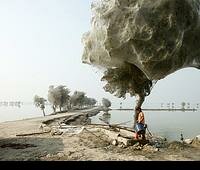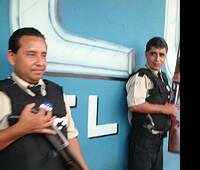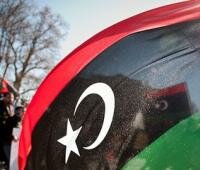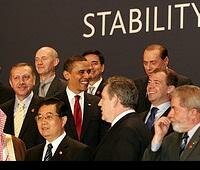Marginalisation of the majority world
A complex interplay of discrimination, global poverty, inequality and deepening socio-economic divisions, together make for key elements of global insecurity. While overall global wealth has increased, the benefits of this economic growth have not been equally shared. The rich-poor divide is actually growing, with a very heavy concentration of growth in relatively few parts of the world, and poverty getting much worse in many other regions. The ‘majority world’ of Asia, Africa and Latin America feel the strongest effects of marginalisation as a result of global elites, concentrated in North America and Europe, striving to maintain political, cultural, economic and military global dominance.

 Climate-related displacement is one of the key challenges facing South Asia in the coming decades. Although there is considerable debate about the salience of the term ‘climate refugees’ and extent to which climate change is a primary cause of forced displacement, there is no doubt that large numbers of people are already having to cope with the impact of environmental changes on their livelihoods and everyday life.
Climate-related displacement is one of the key challenges facing South Asia in the coming decades. Although there is considerable debate about the salience of the term ‘climate refugees’ and extent to which climate change is a primary cause of forced displacement, there is no doubt that large numbers of people are already having to cope with the impact of environmental changes on their livelihoods and everyday life.


 As Libya's protesters-turned-rebels fight a series of hard battles with forces loyal to Muammar Qaddafi, the United States -- and the much of the world -- struggles to find a meaningful response to the conflict. U.S. lawmakers have proposed such aggressive options as
As Libya's protesters-turned-rebels fight a series of hard battles with forces loyal to Muammar Qaddafi, the United States -- and the much of the world -- struggles to find a meaningful response to the conflict. U.S. lawmakers have proposed such aggressive options as